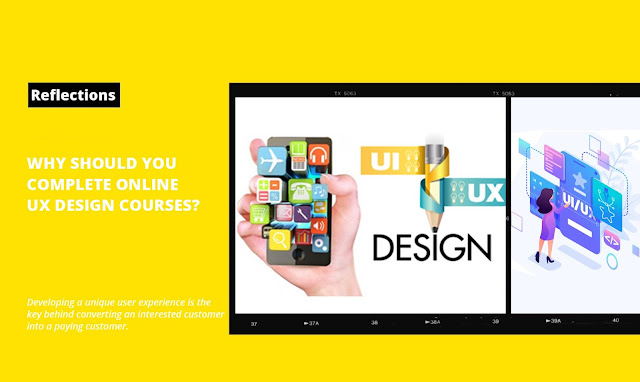Unveiling the Power of UX Design Courses
Crafting a distinctive user experience is the cornerstone of transforming a curious prospect into a paying customer. Businesses increasingly recognize the significance of UX design in their products and services, igniting a surge in the availability of online courses dedicated to mastering this crucial element.
Unveiling the Contents of UX Design Courses
Essential Principles of User Experience
The core component across all UX design courses revolves around instilling a deep understanding of the fundamental principles of user experience. These modules, integral to innovation-centric courses, enlighten students about UX's pivotal role in a product’s lifecycle. Students delve into the significance of user experience in driving sales, trace its evolutionary journey, and comprehend its pivotal status in the product development cycle.
Navigating the Design Process
A pivotal segment of these courses delves into the intricacies of the design process. To engineer a successful UX, students are guided to perceive a product through the lenses of both a customer and a designer. This comprehensive approach cultivates a robust foundation from a designer’s perspective. Moreover, these courses furnish insights into typical design methodologies employed in the industry.
Industry Analysis and Case Studies
Distinguishing itself within online UX design courses, this section spotlights real-world industry instances. Students engage with case studies and product evaluations encompassing both exemplary and subpar UX experiences. Some programs mandate presentations or projects, ensuring students grasp the teachings of each module thoroughly.
Understanding UX Flow
Central to the curriculum, the UX flow module educates students on comprehending the customer’s actual journey. Given the multifaceted nature of a customer's journey—hinging on factors like website compatibility, visual design, information accessibility, and personal inclinations—this course equips students to discern and manipulate the flow to achieve desired outcomes effectively.
Why Pursue a UX Design Course?
Amidst the plethora of online UX design courses, the decision to enroll often hangs in uncertainty for aspiring designers. However, the advantages are significant:
Industry Insight: Courses offer in-depth industry insights into UX design, providing unbiased education rooted in real-world examples. Unlike self-learning avenues reliant on limited sources, these courses present a holistic perspective.
Skill Enhancement: These courses foster creativity and design acumen in unconventional ways, a skill challenging to acquire without expert guidance. Formal instruction bridges the gap between theoretical understanding and industry expectations.
Validation of Expertise: Completion of an online UX design course validates skills with a formal certificate, a tangible asset in the eyes of recruiters who seek substantiated expertise beyond mere claims.
Flexibility: Unlike traditional offline courses, online UX design courses offer flexibility in scheduling. With varying durations—ranging from short-term to extensive programs—students can balance learning with other commitments seamlessly.
Enrolling in an online UX design course proves advantageous for individuals aspiring to thrive in the UX design realm. These courses, available in diverse durations, cater to beginners and seasoned designers alike. For those seeking exemplary courses in innovation, MIT ID Innovation stands out, offering an array of comprehensive courses. Dive deeper into our UX Design Course page to explore the enriching opportunities awaiting you.

.jpg)

Comments
Post a Comment